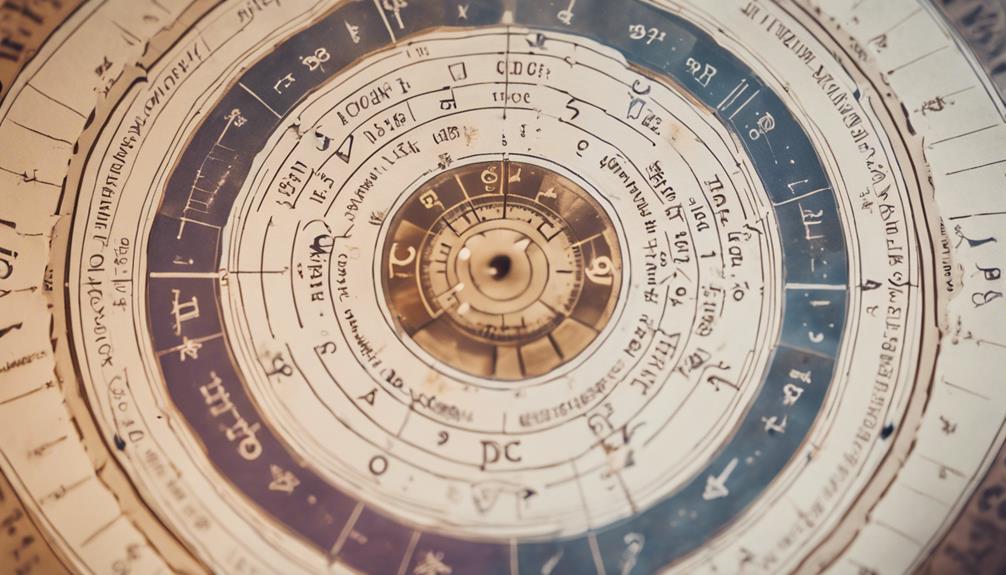How To Find My Houses In Astrology

Welcome to the fascinating world of astrology houses! If you're new to the subject, you may be wondering what astrology houses are and why they matter. Essentially, astrology houses represent different areas of life, such as relationships, career, and spirituality, and how planetary energies manifest in those areas for each individual. Knowing your houses is a key factor in understanding your cosmic blueprint and gaining insight into your unique talents, challenges, and potential outcomes.
So, how do you find your houses in astrology? One way is to use an astrology house calculator, which will determine the specific houses in your birth chart based on your birth date, time, and location. With this information, you can begin to explore the meanings and symbolism associated with each of the twelve houses, as well as the different astrology house systems used by astrologers.
Understanding your houses is a crucial step in interpreting your birth chart and gaining self-awareness. It offers a deeper understanding of your personality traits, talents, and challenges, and can guide you in making informed decisions in different areas of your life. So, let's dive into the world of astrology houses and discover what they can reveal about your cosmic journey!
Understanding Astrology Houses
Astrology houses are a fundamental aspect of a birth chart, representing different areas of one's life and personality. Each house has a unique set of meanings and energies, reflecting the complexities and potentials of human experience.
There are twelve astrology houses in total, numbered from 1 to 12 in a counter-clockwise direction, starting from the Ascendant or the Eastern horizon. The significance of each house depends on its position in the chart and the zodiac sign it occupies.
The following table provides a brief summary of each astrology house and its basic themes:
| House | Sign | Themes |
|---|---|---|
| 1st House | Aries | Self-image, identity, physical appearance |
| 2nd House | Taurus | Money, possessions, values |
| 3rd House | Gemini | Communication, learning, siblings |
| 4th House | Cancer | Home, family, roots, emotions |
| 5th House | Leo | Creativity, romance, children, pleasure |
| 6th House | Virgo | Work, health, service, routines |
| 7th House | Libra | Partnerships, marriage, contracts |
| 8th House | Scorpio | Transformation, intimacy, joint resources |
| 9th House | Sagittarius | Travel, higher education, philosophy, beliefs |
| 10th House | Capricorn | Career, ambition, public image |
| 11th House | Aquarius | Community, groups, social causes |
| 12th House | Pisces | Spirituality, dreams, secrets, subconscious |
These broad themes can be further elaborated and nuanced depending on the planets and signs that populate each house, as well as other factors such as planetary aspects and transits.
There are various astrology house systems used by astrologers, such as Placidus, Koch, and Whole Sign. Each system has its strengths and weaknesses, and it's important to use the one that feels most resonant and meaningful for one's practice.
Understanding Astrology House Meanings
To gain a deeper understanding of astrology houses, it's helpful to explore their meanings and symbolism in more detail.
The 1st house, for instance, is traditionally associated with the Ascendant or the rising sign, and represents the self-image and identity of the individual. This house governs the physical appearance, the personality traits, and the first impressions that one makes on others.
The 2nd house, on the other hand, is linked to Taurus and is concerned with the material and financial resources of an individual. This house reflects one's values, assets, and personal possessions, as well as their capacity for generating and managing wealth.
The 3rd house, ruled by Gemini, is associated with communication, learning, and information-sharing. This house governs the mental faculties of an individual, as well as their ability to connect with others through language and social skills.
The 4th house, associated with Cancer, is linked to the family, home, and emotional roots of an individual. This house reflects the personal and psychological foundations of one's life, as well as the nurturing and protective qualities of the self.
The remaining houses can be similarly analyzed and interpreted, providing a rich and multidimensional picture of the self and its potentials.

Calculating Your Astrology Houses
Calculating your astrology houses requires some basic information from your birth chart, including your birth date, birth time, and birthplace. You can use an online astrology house calculator or a house system calculator to determine your house cusps and placements.
| Step | Description |
|---|---|
| 1 | Find your birth chart, which is a map of the sky at the exact moment you were born. |
| 2 | Locate the ascendant or rising sign, which represents the beginning of the first house. |
| 3 | Calculate the degree of the ascendant and identify the sign on that degree. |
| 4 | Divide the birth chart into twelve equal sections, with each section representing one astrology house. |
| 5 | Identify the cusp points, which are the points where each house begins and ends. |
| 6 | Calculate the degree of each house cusp based on the ascendant sign and degree. |
| 7 | Identify the sign that falls on each house cusp and determine the house placement of each planet in your birth chart. |
It's important to note that accurate birth time is crucial for precise house calculations, as even a few minutes can affect the placements of the houses and planets. If you don't know your exact birth time, you can still get a general idea of your house placements, but the positions may not be as accurate.
Understanding House Rulers
House rulers are an essential component of astrology houses. In astrology, each house is ruled by a specific planet, which contributes to its inherent energies and themes. Understanding house rulers can help you gain a deeper understanding of the impact of different planets in your birth chart.
For instance, if your second house is ruled by Venus, you may have a strong inclination towards material possessions, beauty, and luxury. Similarly, if your seventh house is ruled by Mars, you may have a competitive spirit and dynamic relationships.
The concept of house rulership is based on the natural order of zodiac signs, and each house ruler follows a set sequence. Aries rules the first house, Taurus rules the second house, and so on. This system helps astrologers determine the primary influencers of each house and interpret their impact.
It's worth noting that house rulers can also be planets other than the natural rulers. For instance, if Capricorn is on your 10th house cusp, its ruler, Saturn, will be the ruler of your 10th house, regardless of whether Capricorn is your ascendant or not.
Understanding the significance of house rulers
House rulers provide valuable insights into your life purpose, strengths, and challenges. They offer clues about which areas of life you are likely to experience the most activity, growth, and transformation.
For example, if your Moon is the ruler of your 10th house, career success may be closely tied to emotional fulfillment. If you have Mars as the ruler of your fourth house, you may have a strong connection to family and home, but also a tendency towards conflict or impulsiveness.
Interpreting house rulers can also help you gain clarity on recurring patterns in your life. For instance, if Saturn rules your sixth house, you may continually encounter obstacles in your daily routines and health, which can be overcome by developing discipline and responsibility.
Note: Learning about house rulers can be challenging, especially for beginners. Don't be discouraged if it takes time to understand how planets operate within different astrology houses.
Interpreting Your Houses
Now that you have calculated your astrology houses and understand the significance of each house ruler, it's time to interpret your houses. The placement of planets in each house can provide valuable insights into different aspects of your life and personality traits.
Here are a few tips to help you analyze your house placements:
- Consider the themes associated with each house. For example, the 1st house represents the self, the 7th house represents relationships, and the 10th house represents career.
- Look at the ruling planet of each house and its placement in your birth chart. This can shed light on the energies and motivations behind the house topics.
- Take note of any aspects between the planets in your houses and other planets in your chart. These connections can provide additional information about how the energies of each house interact with one another.
Remember that each person's birth chart is unique, so the interpretations of your houses may vary. Don't be afraid to explore and experiment with different interpretations to find what resonates with you.
If you're having trouble interpreting your houses, consider consulting with an experienced astrologer for guidance. They can provide a more in-depth analysis of your birth chart and help you unlock the full potential of your astrological profile.
Exploring the Significance of Each House
Understanding the meaning and symbolism associated with each astrology house is essential to comprehending one's birth chart. In this section, we will explore each of the twelve houses and discover the areas of life they represent.
First House: The House of Self
The first house represents the individual self, physical appearance, and personal characteristics. It is also known as the Ascendant or Rising Sign. The ruling planet of the first house is Mars, and its element is Fire.
Second House: The House of Wealth
The second house represents money and possessions, as well as self-worth and values. The ruling planet of the second house is Venus, and its element is Earth.
Third House: The House of Communication
The third house represents communication, early education, and siblings. It also governs short trips and transportation. The ruling planet of the third house is Mercury, and its element is Air.
Fourth House: The House of Home and Family
The fourth house represents home, family, and roots. It also governs property and the end of life. The ruling planet of the fourth house is the Moon, and its element is Water.
Fifth House: The House of Creativity and Love
The fifth house represents creativity, self-expression, romance, and children. It also governs gambling and speculation. The ruling planet of the fifth house is the Sun, and its element is Fire.
Sixth House: The House of Health and Service
The sixth house represents health, work, and service. It also governs small animals and daily routines. The ruling planet of the sixth house is Mercury, and its element is Earth.
Seventh House: The House of Partnership
The seventh house represents partnerships, marriage, and contracts. It also governs open enemies and lawsuits. The ruling planet of the seventh house is Venus, and its element is Air.
Eighth House: The House of Transformation
The eighth house represents transformation, shared resources, and intimacy. It also governs death and inheritance. The ruling planets of the eighth house are Mars and Pluto, and its element is Water.
Ninth House: The House of Expansion
The ninth house represents higher education, travel, philosophy, and religion. It also governs foreign countries and legal matters. The ruling planet of the ninth house is Jupiter, and its element is Fire.
Tenth House: The House of Career
The tenth house represents career, reputation, and social status. It also governs authority figures and long-term goals. The ruling planet of the tenth house is Saturn, and its element is Earth.
Eleventh House: The House of Community
The eleventh house represents community, groups, and social networks. It also governs hopes and wishes. The ruling planet of the eleventh house is Uranus, and its element is Air.
Twelfth House: The House of Spirituality
The twelfth house represents spirituality, hidden enemies, and self-undoing. It also governs hospitals and prisons. The ruling planet of the twelfth house is Neptune, and its element is Water.
By understanding the significance of each astrology house, you can gain a deeper insight into your personality, strengths, and challenges. Use this knowledge to enhance your understanding of your cosmic blueprint and navigate life's journey with clarity and purpose.
Tips for Applying House Knowledge
Now that you have a better understanding of your astrology houses, it's time to apply this knowledge to your daily life. Here are some tips to help you make the most of your house interpretation:
- Journal your insights: Keep a journal to track your observations and insights about your houses over time. This will help you gain a deeper understanding of your astrological profile and monitor your progress.
- Set intentions: Use your house interpretations to set intentions in different areas of your life. For example, if your fifth house represents creativity, you might set an intention to express yourself more through art or writing.
- Make informed decisions: Consult your house placements when making important decisions, such as career choices or relationship commitments. This will help you align your choices with your cosmic blueprint.
- Explore your potential: Use your house knowledge to identify your strengths and potential challenges. This will enable you to take actions that leverage your strengths and overcome obstacles.
Remember, your astrology houses offer a powerful tool for self-discovery and growth. Don't be afraid to dive deeper into your astrological journey and use your house interpretations to create a more fulfilling life.
Frequently Asked Questions About Astrology Houses
Astrology houses can be a complex topic to understand, and many people have questions about their significance in astrology. Here are some frequently asked questions about astrology houses, along with concise and informative answers.
What if I have an empty house in my birth chart?
Having an empty house in your birth chart does not necessarily mean that you lack energy or focus in that area of life. Instead, it simply means that there are no planets occupying that house at the time of your birth. However, the house can still hold significance in your life, as it indicates the themes and areas of life that are particularly important to you.
What if I have overlapping house placements?
Overlapping house placements occur when a planet is located at the end of one house and the beginning of another. In this case, both houses are considered to be important in interpreting the energy of that planet. However, the house placement that contains the majority of the planet's degree is considered to be the primary placement.
What if a planet is retrograde in my birth chart?
Retrograde planets in a birth chart can indicate areas of life where one may experience delays, setbacks, or a need to revisit old patterns. However, retrograde planets can also bring a unique perspective and offer a chance for growth and development. In terms of astrology houses, retrograde planets can influence the house they are located in, as well as the house they rule.
How do transits affect the houses in my birth chart?
Transits occur when planets in the current sky make aspects to planets in your birth chart. These transits can activate different areas of life and bring new opportunities or challenges. Depending on the planet and the aspect, transits can affect different houses in your birth chart, and understanding your houses can help you make the most of these cosmic influences.
By understanding the significance of astrology houses in your birth chart, you can gain a deeper awareness of your strengths, challenges, and potential in various areas of life. Whether you are a beginner or an experienced astrologer, exploring your houses can offer valuable insights and guidance for your journey.
🔴 Need Clarity on your Situation?




